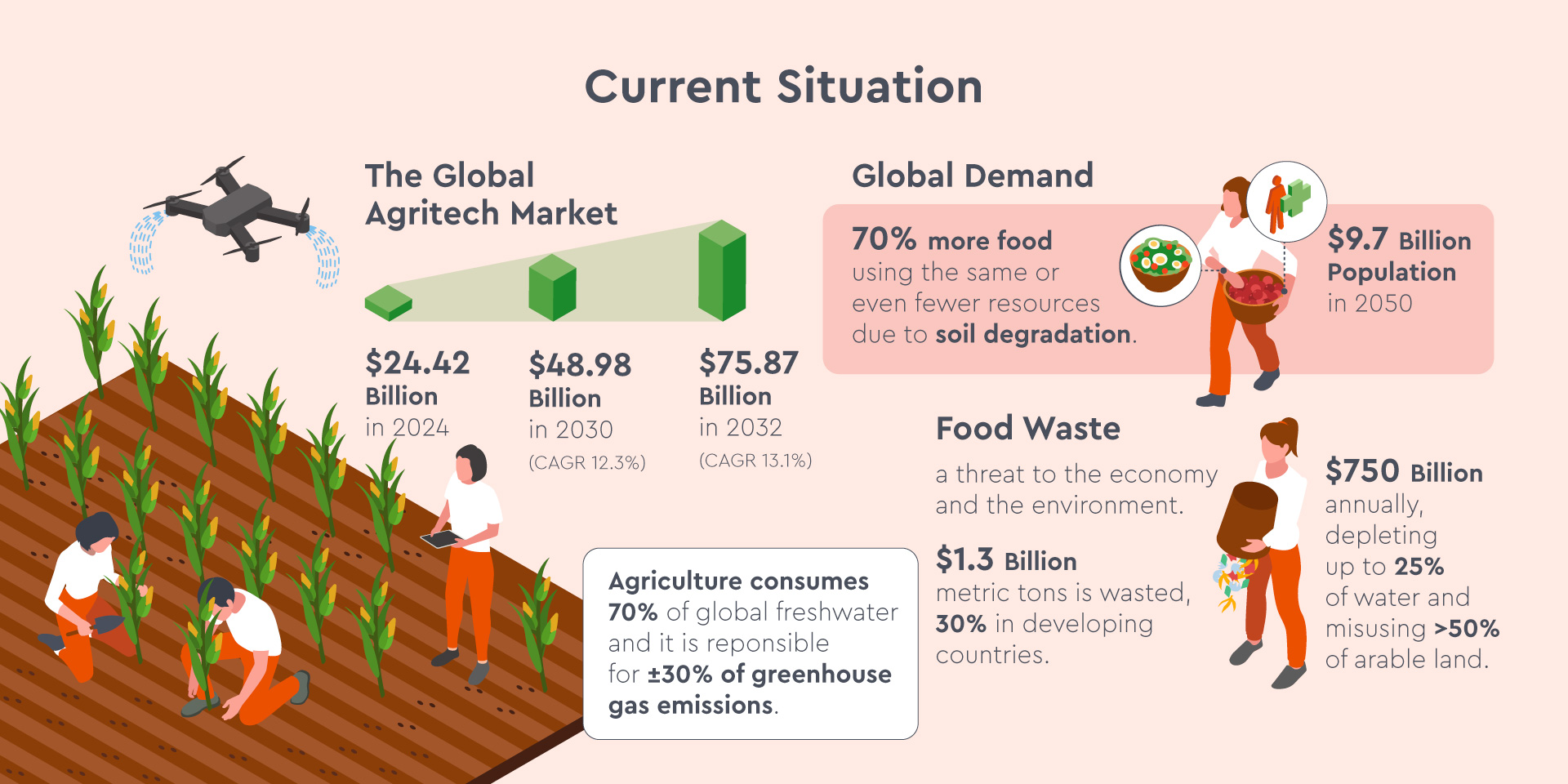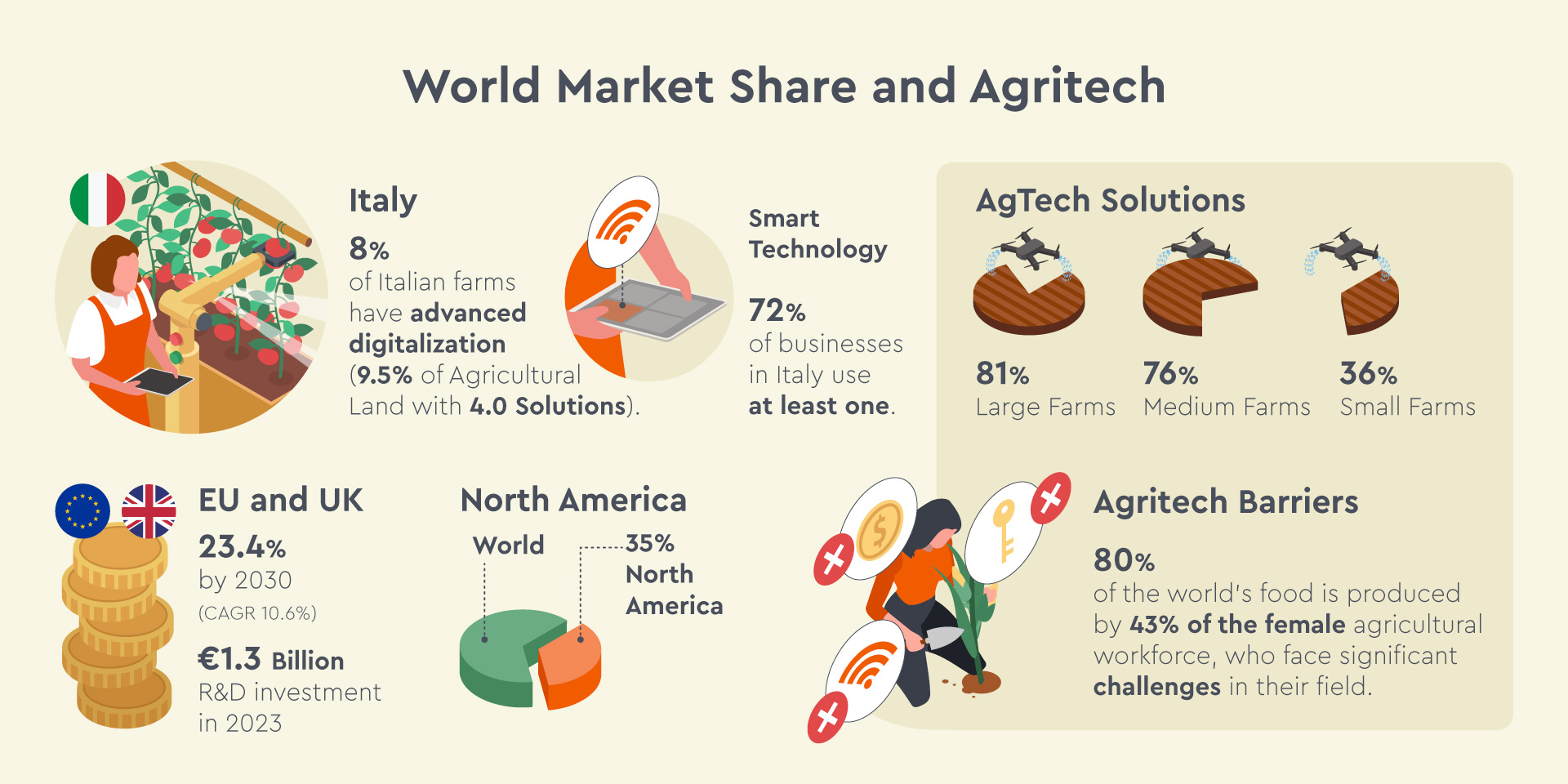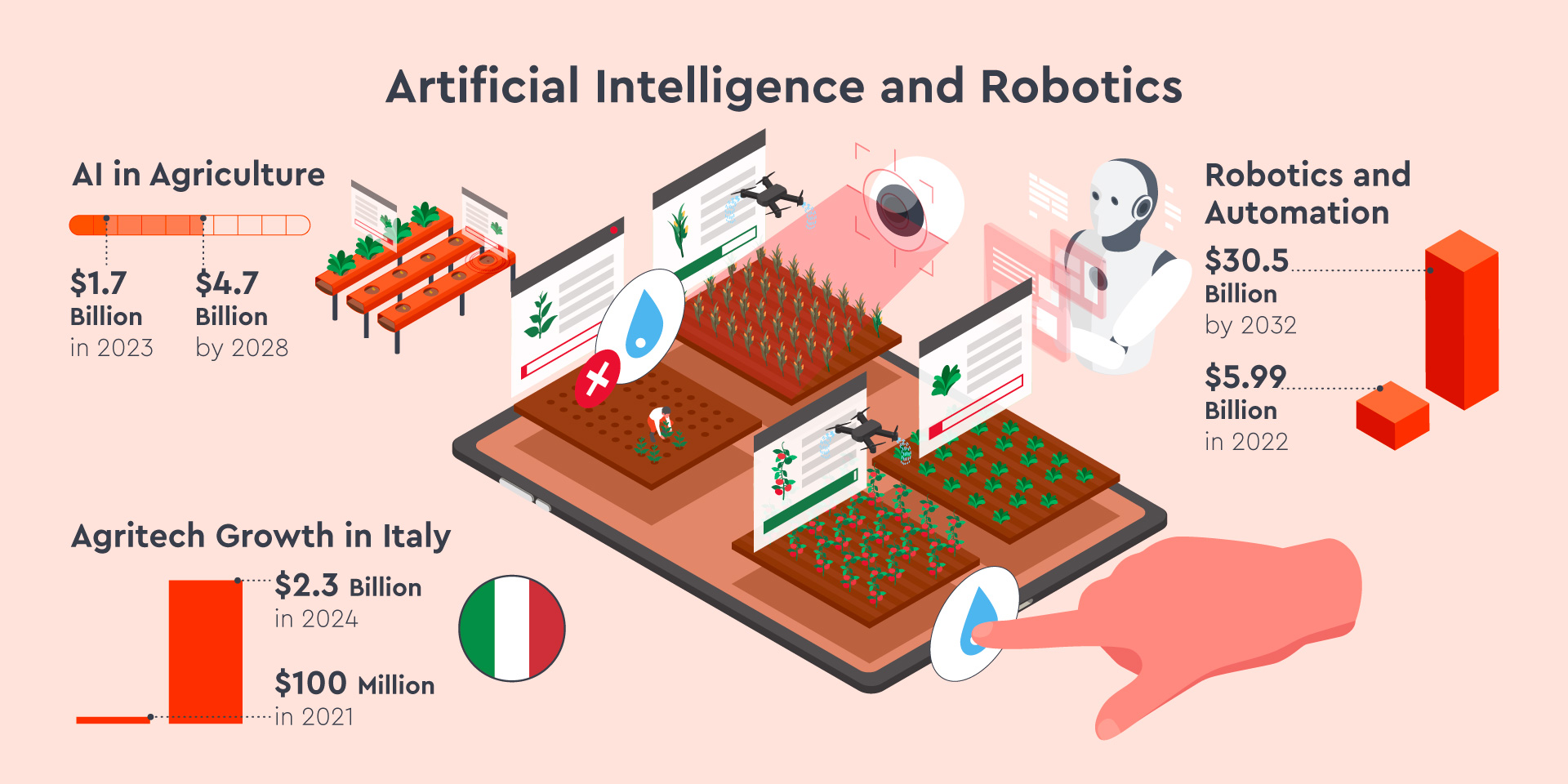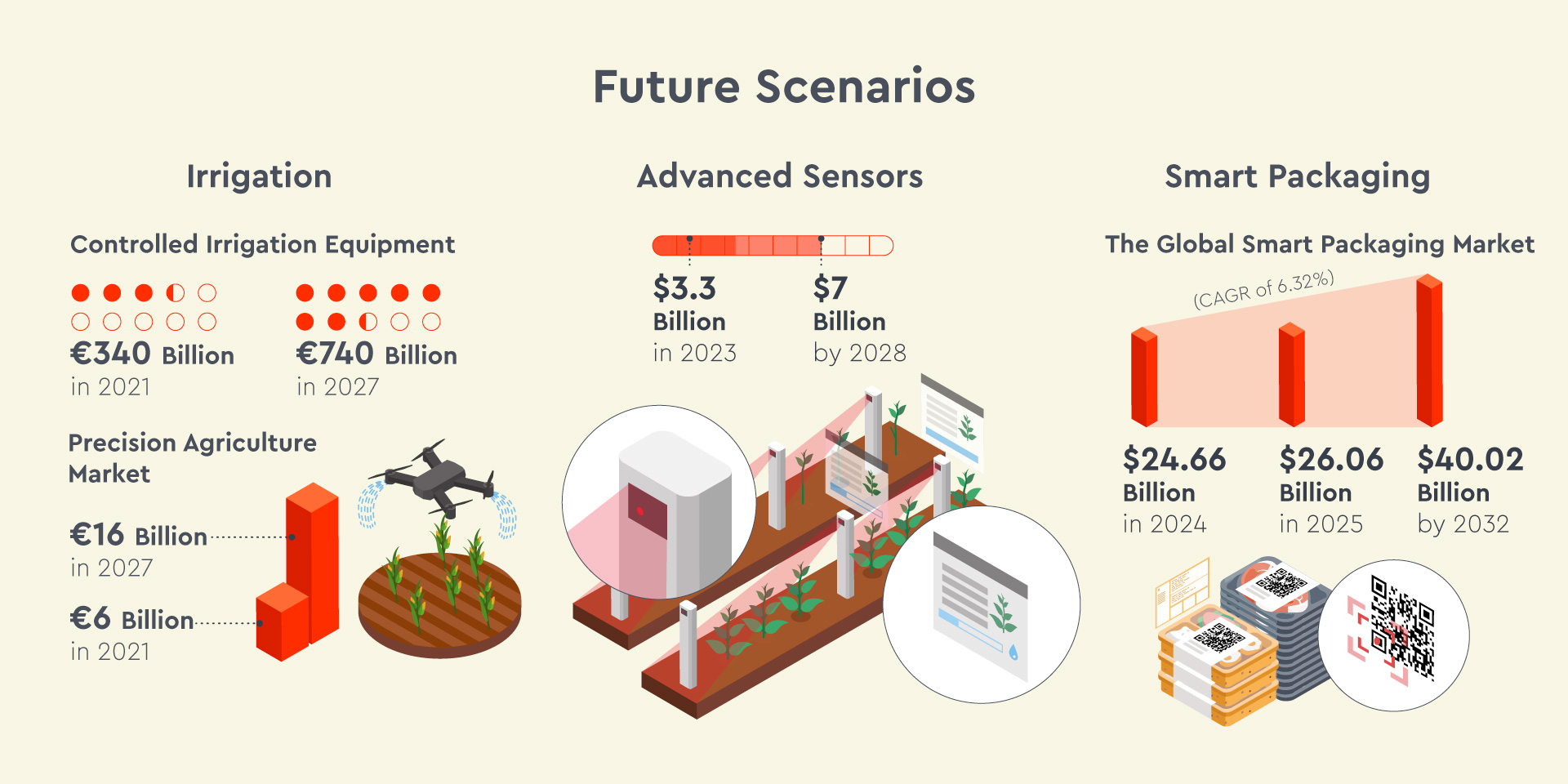Agritech & Design
The term “Agritech”, derived from “agriculture” and “technology”, refers to the use of advanced and innovative tools to optimise productivity and efficiency, reduce costs, and promote sustainability.
Agriculture is currently one of the sectors with the highest rate of innovation in response to the increasing demand for food, while resources dwindle due to climate change.




